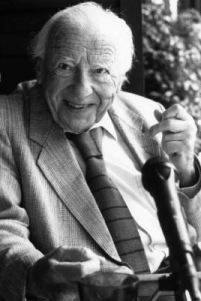RO delivers a death blow to Correspondence Theory of Truth
With the advent of postmodernism (hyper-modernism?) evangelical theolgians and philosophers have been scrambling to defend Biblical Christianity against the evils of postmodern theory. One of the most important grounds is the theory of truth. As read by evangelicals like Douglas Groothius, postmodernists like Rorty and Derrida demand that truth be relativized in a way that is repugnant to orthodox Christians. To defend against the relativism of postmodernity (note: I don't think "postmoderns" are demanding a totaly relativity, I think evangelicals are not up on their reading enough to undertand what Derrida and Rorty are saying - nod to Charles here) Groothius and others resort back to the vaunted Correspondence Theory of Truth (CTT), the saviour of all metaphysics and meaning. But is it?
Interestingly enough, RO claims that CTT is nothing but dressed up Modernism in its highest extent, which of course is nothing other than nihilism. Are they serious? Well, what are the claims of CTT?
"Truth is located in this [mirroring of the world] correspondence.
Insofar as these things simply "are" in the world, and thus accessible and ready
to hand for any finite perceiver, it is possible for anyone to apprehend
properly the truth of the world" (Smith, 159).
Working under the RO thesis, does anyone see what is wrong with this picture? That's right, CTT is nothing more than a robust for of "univocity" of being, the Scotus idea that we can seperate being from the Triune Being, where all meaning is derived. According to RO, there is nothing that is autonomous from the Triune God, therefore there is nothing to apprehend properly as correspondence. Without God we are literally left with nothing. How does RO destroy CTT? Through Thomas Aquinas, of course.
"Correspondence or adequation for Aquinas is not a matter of mirroring
things in the world or passively registering them on an epistemological level,
in a way that leaves the things untouched. Rather; adequating is an event
which realizes or fulfills the being of things known, just as much as it
fulfills truth in the knower's mind" (Truth in Aquinas, 5).
"For Aquinas, there is a sense in which truth resides in things:
'Truth is a property of things" such that 'a thing is true if it fulfills itself
and holds itself together according to its character and goal" (Smith,
159).
Again, RO makes the claim that there is no world independent of God with which to correspond to and that things are nothing in and of themselves, they only have substance and existence "gifted" by the Creator. Corresponding to the world means corresponding to nothingness, so according to RO, CTT does not yield truth, but rather gives nothingness. "Truth, therefore, resides in things insofar as things participate in God (Smith, 159)."
RO also uses its thesis to rework the discussion of faith versus reason. Since all things find their meaning and grouding in participation with the Triune God, reason is not seperate from faith in the dualist sense most people are used to thinking in. RO smashes these dualisms of modernity, especially this one with Aquinas' view of nature versus grace.
"the distinction between nature and grace is not one of kind but of degree,
in particular, the degree of intensity of participation in the divine (Smith,
160)."
Reason is not an autonomous human function as opposed to faith (spuernatural function?), they are both part of the participationist model of knowing, just different in level of intensity of knowledge. "Rather, reason is a reception of light, an operation of divine illumination (Truth in Aquinas, 11)." Nothing is autonomous for RO, even reason as the ground of existence in Descartes. Reason and faith are different parts of relating to divine illumination, one being the forerunner or less sophisticated version of the other. The important thing for RO is to recognize that reason and faith are not opposites, but rather different levels along the same chain of knowing: the divine illumination of the participating mind of man with the Triune God.
Once again RO takes no prisoners in its thorough assualt on modernity and hyper-modernity. RO demands that we see ontology as participationist with the Triune God through illumination and revelation, not casting reason aside (as can be found in Karl Barth) but rather seeing reason as a part of the knowledge given us by our intimate participation with the Creator and Sustainer God: the God who demands to be called Father, Son, and Holy Spirit in the same breath.

